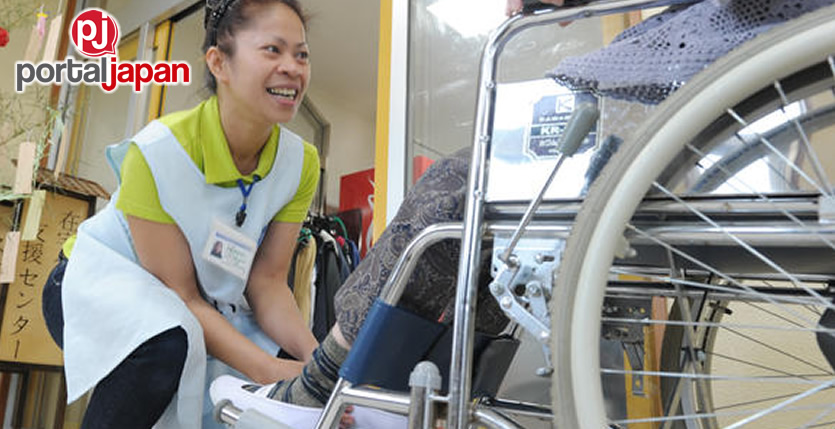Legislation passed Friday opens more doors for foreign-born nursing care professionals to work in Japan, a move taken to address a labor shortage.
The measures, approved by the upper house across party lines, take effect next year. Nursing care will join the list of occupations qualifying for long-term residency. The new residency status will apply to foreigners certified as care workers in Japan.
The Technical Intern Training Program was also altered. Participants, including aspiring nursing care workers, can train with companies or other groups for as long as five years, up from three. A new watchdog will oversee the organizations to ensure that trainees are not overworked or otherwise taken advantage of.
The government will create a system under which a foreigner can work in Japan under nursing care residency status by obtaining state accreditation during the training period.
Japan has until now accepted foreign nursing care professionals from Indonesia, the Philippines and Vietnam exclusively, via bilateral economic partnership agreements. Their stays are limited, and the workers must be certified in their home countries as well as proficient in Japanese. Only around 3,800 nurses and other care professionals made the cut in the last eight years up to September.
But Japan faces a shortage of roughly 380,000 nursing care staffers in 2025, according to the Ministry of Health, Labor and Welfare. To bridge the gap, the government will allow workers to come from locations outside the three EPA nations.
The language barrier will be addressed by allowing aspiring care workers to immigrate to Japan, where they will have time to carefully build up their knowledge of Japanese and their communications skills. This pre-training preparation will help the new system cultivate needed talent, according to a source in the Ministry of Justice.
Japan’s working-age population is shrinking as the population grays. Taking in foreign workers has emerged as a leading option for maintaining economic growth. As one avenue, the government plans to let such highly skilled workers as business managers and engineers apply for permanent residency after staying a year.
Japan generally does not allow entry-level workers from abroad to fill positions in industries short of labor. But the government is looking into using bilateral agreements to expand the intake of construction workers and establishing special districts that will accept foreign farmworkers.
As things stand, construction and agricultural companies can rarely accept foreign laborers outside the trainee system. Critics point out the impracticality of the framework, given that the workers must return home after training ends.
Source and image: Nikkei

















Join the Conversation